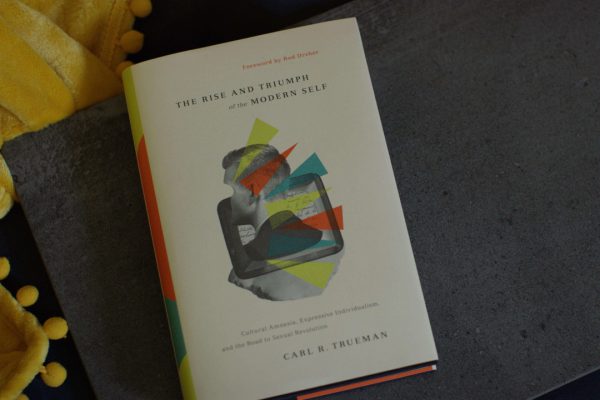When it comes to who belongs to the kingdom of God, it is easy for us to take our cues from our culture. According to the world, the kingdom belongs to the popular, the impressive, the powerful, the useful, and the wise. In Mark’s gospel, the disciples seem to adopt a similar pattern of thinking. As Jesus makes his way to Jerusalem he teaches his disciples about what characterizes those who desire to receive this kingdom and enter into it. In Mark 9:36-37 Jesus commanded his disciples to welcome children and those like them, “for whoever receives one such child receives Jesus and the Father who sent him.” But when children were being brought to Jesus for a blessing, the disciples rebuked them instead of welcoming them, which made Jesus indignant (Mk. 10:13-14). Yikes.
Part of Discipleship 101 is not making Jesus angry. As followers of Jesus we would do well to learn from the failure of the disciples and learn to see things as Jesus sees them, to have his priorities, to have his heart for children and others like them.
Kids, the Kingdom, and the Culture
Whether the crowds are bringing children to Jesus for healing or for a simple blessing, the disciples seem to assume that these children did not need to bother their rabbi. Children at that time were considered helpless, powerless, valueless. They had nothing to contribute, no power, no status, no influence. So, very naturally, the disciples assumed Jesus would not want to be bothered by them. But, “when Jesus saw it, he was indignant and said to them, ‘Let the children come to me; do not hinder them'” (Mk. 10:14).
Jesus is not angry at the crowds bringing the children but with those preventing the weak, powerless, and “worthless” from coming to him. To hinder is the verb used when Jesus rebukes the scribes and Pharisees for shutting the kingdom of God in peoples’ faces and preventing them from entering (Lk. 11:52). The apostle Paul said the Jews were “hindering us from speaking to the Gentiles that they might be saved—so as always to fill up the measure of their sins.” (1 Thess. 2:16). In Acts 10:47 Peter asks, “Can anyone withhold water for baptizing these [Gentiles], who have received the Holy Spirit just as we [Jews] have?” Then, reporting to the church. Peter says, “If God gave the same gift to them as he gave to us when we believed in the Lord Jesus Christ, who was I that I could stand in God’s way?” (Acts 11:17). Literally, Peter says, “Who was I to be able to hinder God?” In hindering children from coming to Jesus, the disciples were acting like the enemies of God’s kingdom who seek to hinder his work of blessing.
Jesus then explains the reason for letting children come to him: “For to such belongs the kingdom of God” (Mk. 10:14). The phrase “to such” indicates that Jesus isn’t just talking about children but to all those who share their same status: those with no power, influence, or status in the world’s eyes. Jesus says it is precisely these kinds of helpless individuals who have a rightful share in his kingdom. The problem was the disciples had been taking their cues about the kingdom of God from the culture. They were defining the kingdom and its citizens by the same things the culture did: power, status, influence. This is why they had been arguing about “who is the greatest” in the kingdom (Mk. 9:33-37), and why some of them asked for positions of power in Christ’s kingdom (Mk. 10:35-45). But the disciples had it all wrong.
Becoming Like Children
Speaking speaking with divine authority, Jesus goes on to explain how we are to receive and enter the kingdom of God: “Truly, I say to you, whoever does not receive the kingdom of God like a child shall not enter it.” (Mk. 10:15). Jesus declares that the kingdom of God isn’t only for the powerful and privileged, the smart and successful; his kingdom is not a club for mature grownups. It’s for those who are like children, and who receive the kingdom like children.
What Jesus is getting at with this idea of becoming like children is not so much the virtues that kids have—such as being trusting, hopeful, innocent, or willing to receive to gifts—because “children can also be demanding, short-tempered, sulky, stubborn, thankless, and selfish.”1David E. Garland, Mark, The NIV Application Commentary (Grand Rapids, MI: Zondervan, 1996), 381. It is more so highlighting what kids lack. They are helpless, powerless, insignificant. They have nothing to give Jesus to gain an audience, nothing to contribute to his kingdom. They have “no credits, no clout, no claims.”2James R. Edwards, The Gospel according to Mark, The Pillar New Testament Commentary (Grand Rapids, MI; Leicester, England: Eerdmans; Apollos, 2002), 307. The parallel passage in Matthew 18:1-4 emphasizes the status of the child by describing children as “humble.”
In other words, the kingdom of heaven belongs to those who realize their helplessness, their powerlessness, their weakness. It doesn’t belong to those who have “grown-up” values, who are still worried about wealth, value, position, and power. The very next story in Mark’s Gospel about the rich man shows this exact mindset (Mark 10:17-31). Rather, the kingdom belongs to those who realize they have no status or influence in God’s sight, who are poor in spirit and meek (cf. Matt 5:1-11), and who show a childlike trust and hope in their Father when he holds out his offer of forgiveness.
Little Ones to Him Belong
Regardless of your view of infant baptism, the broader point still stands: Jesus loves children and cares about their spiritual wellbeing. He wants them to come to him and believes they belong in his church. Therefore, we should welcome children and those like them, regardless of what they can contribute, how smart, impressive, or obedient they are. We must be on guard against the possibility of hindering children, and those like them, from coming to Jesus.
This is why we have classes for children to study God’s Word and why we encourage families to keep their children in the worship service. Furthermore, it is also why we removed the age requirement for baptism and church membership from our constitution, opting to baptize into membership every person who gives evidence of credible faith on a “case-by-case” basis, irrespective of age. Our kids need to know, and be reminded constantly, that they are welcomed and loved by Jesus in spite of what they lack, and so do we.
“Little ones to him belong, they are weak but he is strong.“




